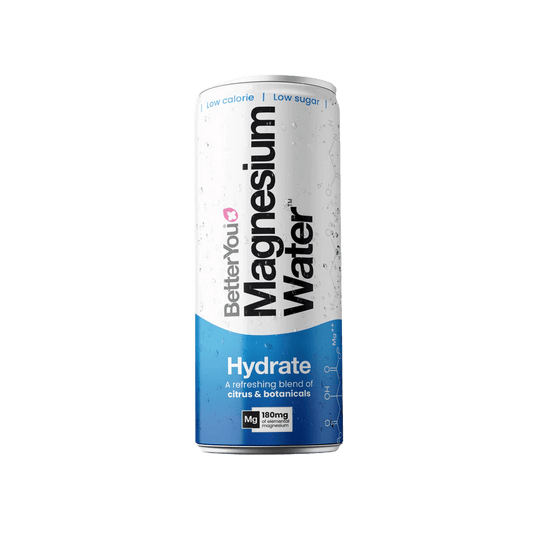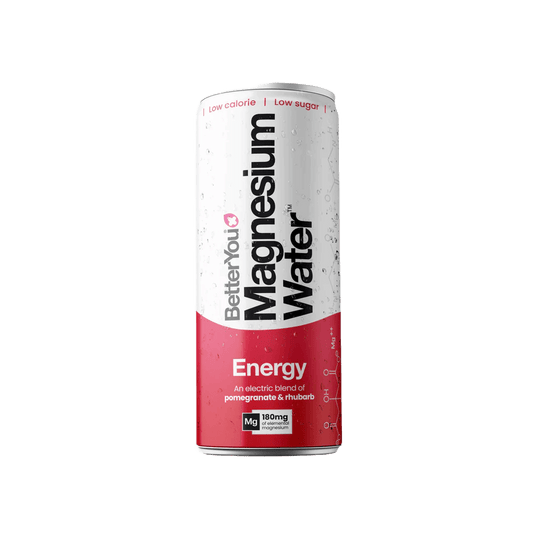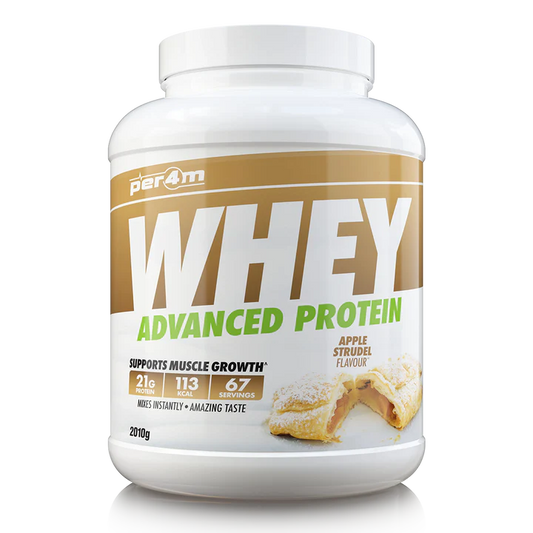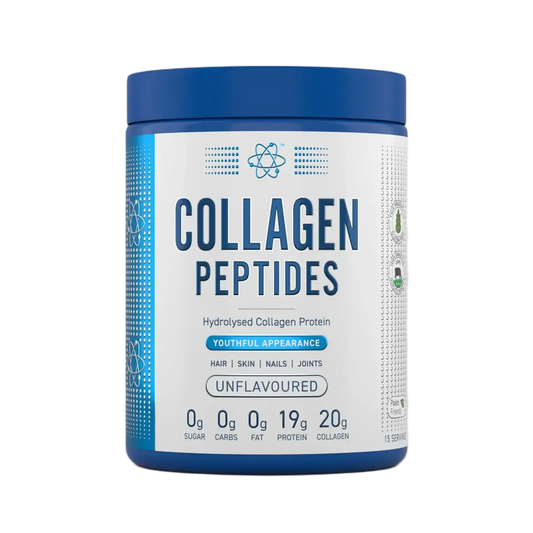Introduction: Why Collagen Is More Than a Beauty Buzzword
For years, collagen was marketed almost exclusively in skincare ads, sold as the “fountain of youth” for hair, skin, and nails. But in the last decade, collagen has crossed over into the fitness world—now sitting on the same shelf as whey protein, creatine, and BCAAs. Why? Because research increasingly shows collagen isn’t just for appearances—it may play a vital role in muscle recovery, joint health, and connective tissue repair.
If you’ve ever left a heavy squat session with knees creaking, or felt your elbows light up after bench press day, collagen is worth paying attention to. Unlike whey or casein, collagen contains unique amino acids—glycine, proline, and hydroxyproline—that specifically target tendons, ligaments, and cartilage. In other words: it goes where standard protein often can’t.
This blog digs into the science, the evidence, and the practical side of collagen for recovery—what it does, how long it takes to work, and whether it’s worth adding to your daily supplement line-up.

Does Taking Collagen Actually Help Joints?
The short answer: yes—though results vary depending on the individual and the form of collagen taken. Collagen is the most abundant protein in your body, making up around 70% of cartilage in your joints. As we age, natural collagen production declines, which is why many lifters start noticing stiffness or slower recovery in their 30s and 40s.
Multiple studies have found that supplementing with hydrolysed collagen peptides can reduce joint discomfort in athletes. One paper published in the British Journal of Nutrition showed that athletes taking collagen reported less joint pain during activity compared to a placebo group. Another trial on military recruits—who perform daily high-impact exercise—found collagen supplementation reduced reports of knee pain.
The mechanism is simple: collagen provides the raw materials (amino acids) your body uses to rebuild and maintain cartilage. Think of it as fuelling the repair crew for your joints.
Is There Any Evidence That Collagen Supplements Work?
Plenty of evidence supports collagen for joint health—and growing data shows promise for muscle recovery too. A meta-analysis in Nutrients (2021) concluded that collagen peptides significantly improved joint function and reduced exercise-related joint pain.
For muscles, the evidence is newer but compelling. Collagen won’t stimulate muscle protein synthesis (MPS) as strongly as whey—it’s lower in leucine, the amino acid that triggers muscle growth. However, collagen appears to support connective tissue and fascia around muscles, which are just as critical for recovery and performance.
A common misconception is that collagen is “just another protein powder.” In reality, it’s a specialised recovery supplement—not a replacement for whey or casein, but a complement. Whey rebuilds muscle fibres; collagen helps repair the scaffolding that keeps those fibres stable and injury-resistant.

How Long Does It Take for Collagen to Work on Joints?
Here’s the frustrating truth: collagen is not a quick fix. Unlike caffeine or creatine, you won’t feel its effects in a single workout. Clinical trials suggest collagen takes 8 to 12 weeks of consistent daily use before meaningful changes show up.
That might sound slow—but collagen works on deep, structural tissues that naturally take time to remodel. Think about cartilage: it has no direct blood supply, so nutrients reach it more slowly than muscle. That’s why collagen supplementation is often described as an “investment supplement.” You commit to daily doses, and the payoff comes weeks later as training feels smoother, and joint niggles ease.
A pro tip: collagen seems to work best when paired with vitamin C. Research from the University of Illinois found that taking collagen alongside vitamin C before activity increased collagen synthesis in tendons. For lifters, this might mean pairing collagen with a piece of fruit pre-workout or mixing it into a citrus-flavoured shake.
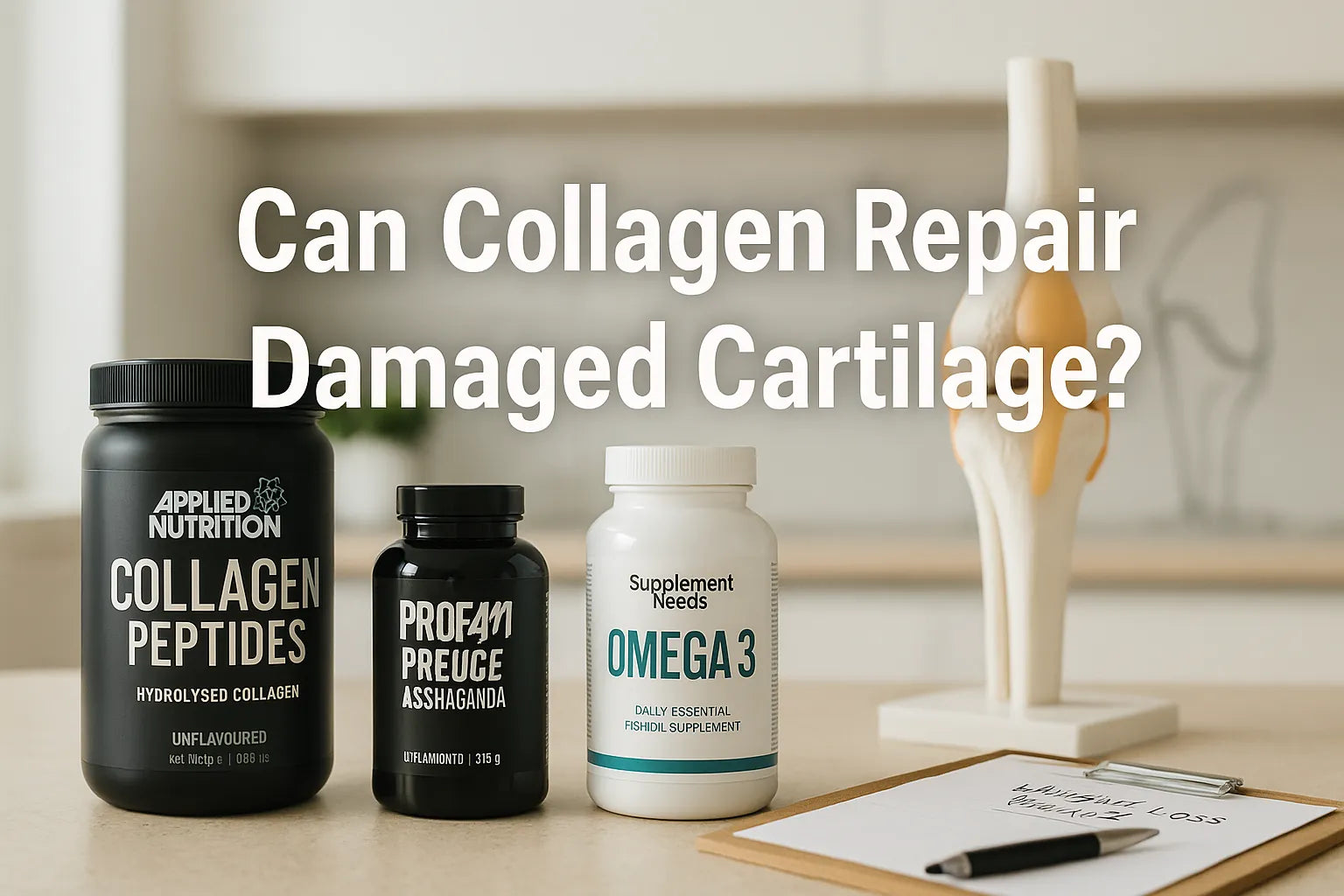
Can Collagen Repair Damaged Cartilage?
This is where things get tricky. Collagen can support cartilage repair and reduce the rate of breakdown, but it cannot fully regenerate severely damaged cartilage. For example, if you’ve already got advanced osteoarthritis, collagen won’t rebuild your knee from scratch.
However, in cases of mild cartilage wear or workout-induced stress, collagen supplementation may strengthen the remaining tissue and reduce further damage. Athletes often notice less clicking or stiffness in joints after months of use—not because cartilage is magically regrown, but because existing cartilage is better supported and inflammation is reduced.
It’s best to view collagen as preventive and protective rather than curative. If you’re in your 20s and 30s, it can help delay the onset of joint issues. If you’re older or already experiencing discomfort, it may slow progression and keep you training longer.
✅ Recap of Part 1
So far, we’ve covered:
-
Why collagen is relevant beyond skin health.
-
How collagen supports joints and connective tissue.
-
The evidence backing collagen supplements.
-
How long collagen takes to work (8–12 weeks).
-
Its role in protecting cartilage from wear and tear.
🔜 Part 2 will explore:
-
Whether collagen helps muscle recovery.
-
Which type of collagen is best for athletes.
-
Collagen peptides vs whey protein.
-
What experts like the NHS and Mayo Clinic say.
-
When collagen may not be right for you.
-
FAQs and a clear conclusion.
The Science Behind Collagen for Muscle & Joint Recovery (Part 2)
Does Collagen Work for Muscle Recovery?
When most people think of post-workout recovery, whey protein gets all the attention. It’s fast-digesting, high in leucine, and proven to spike muscle protein synthesis (MPS). Collagen, by contrast, is often dismissed because it doesn’t trigger MPS as powerfully. But here’s the nuance: recovery isn’t just about muscle fibres. It’s also about the scaffolding that holds them in place—tendons, fascia, ligaments, and the extracellular matrix.
Collagen supplementation targets this connective tissue system. Several studies have found that athletes supplementing with hydrolysed collagen peptides reported fewer soft tissue injuries and improved recovery after training. In practical terms, this could mean fewer tweaks in your shoulders during pressing days, less hamstring tightness after sprints, or stronger knees when volume ramps up.
Collagen doesn’t compete with whey—it complements it. For example, many lifters will take Per4m Advanced Whey after their session to repair muscle fibres and add Applied Nutrition Collagen Peptides earlier in the day to strengthen connective tissues. This two-pronged approach covers both muscle and support structures. Add Naughty Boy Prime Creatine for strength and Supplement Needs Omega 3 to lower inflammation, and you’ve got a robust recovery stack that goes beyond basic protein.

What Type of Collagen Is Best for Muscle Repair?
Collagen comes in different “types” (I, II, III, etc.), each supporting different tissues. For athletes:
-
Type I supports tendons, ligaments, and bone.
-
Type II supports cartilage.
-
Type III supports skin and vascular health.
Hydrolysed collagen peptides—found in most sports-focused supplements—are broken down into smaller amino acids for easier absorption. This is what you’ll find in Applied Nutrition Collagen Peptides, designed to mix easily and deliver the glycine, proline, and hydroxyproline that your body uses for tissue repair.
Another tip: take collagen consistently, not occasionally. The research shows benefits only after 8–12 weeks of daily intake. That’s when the aminos accumulate enough to start affecting tendon and cartilage repair. Pairing collagen with vitamin C (from citrus fruits, or even alongside BetterYou Magnesium Water which often pairs well in morning routines) helps maximise synthesis.
Is Collagen Peptides Better Than Protein Powder?
This is one of the most common questions, and the answer is straightforward: collagen peptides are not a replacement for whey protein, but they’re better at targeting specific tissues.
-
Whey protein is best for stimulating muscle protein synthesis—ideal immediately after training.
-
Collagen peptides are best for connective tissue repair—tendons, ligaments, cartilage.
Think of it as using different tools for different jobs. If your goal is pure hypertrophy, whey is your anchor. If you’re dealing with niggling knees, shoulder strain, or want to future-proof your joints, collagen peptides are a smarter addition.
In practice, many athletes combine the two. For example, whey after training and collagen in the morning or before bed. If appetite is low, Combat Fuel Clear Whey offers a light, juice-like option, while Applied Nutrition Collagen Peptides blend seamlessly into coffee or smoothies. This way you cover both muscle and joint recovery without overloading digestion.
Does the NHS Recommend Collagen?
The NHS is cautious with supplement recommendations. As of now, collagen isn’t officially recommended as a standard treatment for joint pain or recovery. Instead, they highlight a balanced diet rich in protein, vitamin D, calcium, and omega-3 fatty acids.
That said, NHS guidance does not dismiss collagen either—it simply hasn’t been universally adopted into formal medical guidelines due to mixed clinical data. For now, the NHS recognises the role of protein and amino acids in tissue repair, but collagen is classed under “emerging evidence.”
In practical terms, this means collagen is safe for most people, but should be seen as a complementary strategy, not a medical prescription. It’s similar to omega-3 a decade ago—initially overlooked, then widely validated.
What Does the Mayo Clinic Say About Taking Collagen?
The Mayo Clinic offers a pragmatic stance: collagen is considered safe, with minimal side effects (mainly digestive upset in rare cases). They acknowledge research showing benefits for skin elasticity, joint pain reduction, and muscle recovery, but note that “more long-term studies are needed.”
For athletes, that’s still enough to justify trying it—especially if recovery or nagging joint discomfort is a barrier to progress. Collagen won’t harm performance, and may reduce downtime.
When Shouldn’t You Take Collagen?
Collagen is safe for the majority of people, but there are a few caveats:
-
Allergies: Some collagens are derived from bovine, chicken, or marine sources—always check labels.
-
Digestive sensitivity: A minority of users report bloating or mild stomach upset.
-
Unrealistic expectations: Collagen won’t repair severe cartilage loss or replace medical treatment.
If you’re on a restricted protein intake for medical reasons, or under specialist care for joint conditions, it’s best to check with a healthcare provider before adding collagen.

Conclusion: Is Collagen Worth It for Recovery?
The science is clear: collagen is not a miracle powder, but it does support the tissues that keep you lifting, running, and training without injury. Its benefits are most noticeable when used consistently for 8–12 weeks, especially in athletes who put regular strain on joints and tendons.
The best approach? Pair collagen with a high-quality whey protein for full-spectrum recovery. For example:
-
Per4m Advanced Whey for post-workout muscle fibre repair.
-
Applied Nutrition Collagen Peptides for joint and connective tissue support.
-
Naughty Boy Prime Creatine for strength.
-
Supplement Needs Omega 3 for inflammation management.
-
BetterYou Magnesium Water for hydration and relaxation.
This combined approach doesn’t just chase muscle gains—it builds resilience. Collagen is the long game: invest now, and you may save yourself from injuries, stiffness, and slower recovery later.
FAQ: Collagen for Muscle & Joint Recovery
1. Does collagen actually help with joint pain after workouts?
Yes, studies show collagen peptides reduce exercise-induced joint pain, especially in knees and shoulders.
2. How does collagen support tendons and ligaments?
Collagen provides glycine, proline, and hydroxyproline, which are key amino acids for connective tissue repair.
3. Is collagen good for recovery after weight training?
Collagen won’t stimulate muscle growth directly, but it supports the connective tissues stressed by weight training, aiding overall recovery.
4. What’s the best type of collagen for athletes?
Hydrolysed collagen peptides are best—they’re easily absorbed and specifically target tendons, cartilage, and ligaments.
5. How long does collagen take to work for joints?
Most studies show noticeable benefits after 8–12 weeks of consistent use.
6. Can collagen repair damaged cartilage?
It can slow breakdown and support remaining tissue, but cannot fully regenerate severely damaged cartilage.
7. Is collagen safe to take daily?
Yes, collagen peptides are safe for most people, with very few reported side effects.
8. Should collagen replace whey protein?
No—collagen is a complement, not a replacement. Whey rebuilds muscle, collagen supports connective tissue.
9. Does collagen help skin as well as joints?
Yes, collagen also improves skin elasticity, hydration, and hair/nail strength, making it multi-functional.
10. When shouldn’t you take collagen?
Avoid if you have allergies to the source (bovine/marine) or if advised against protein supplementation for medical reasons.


